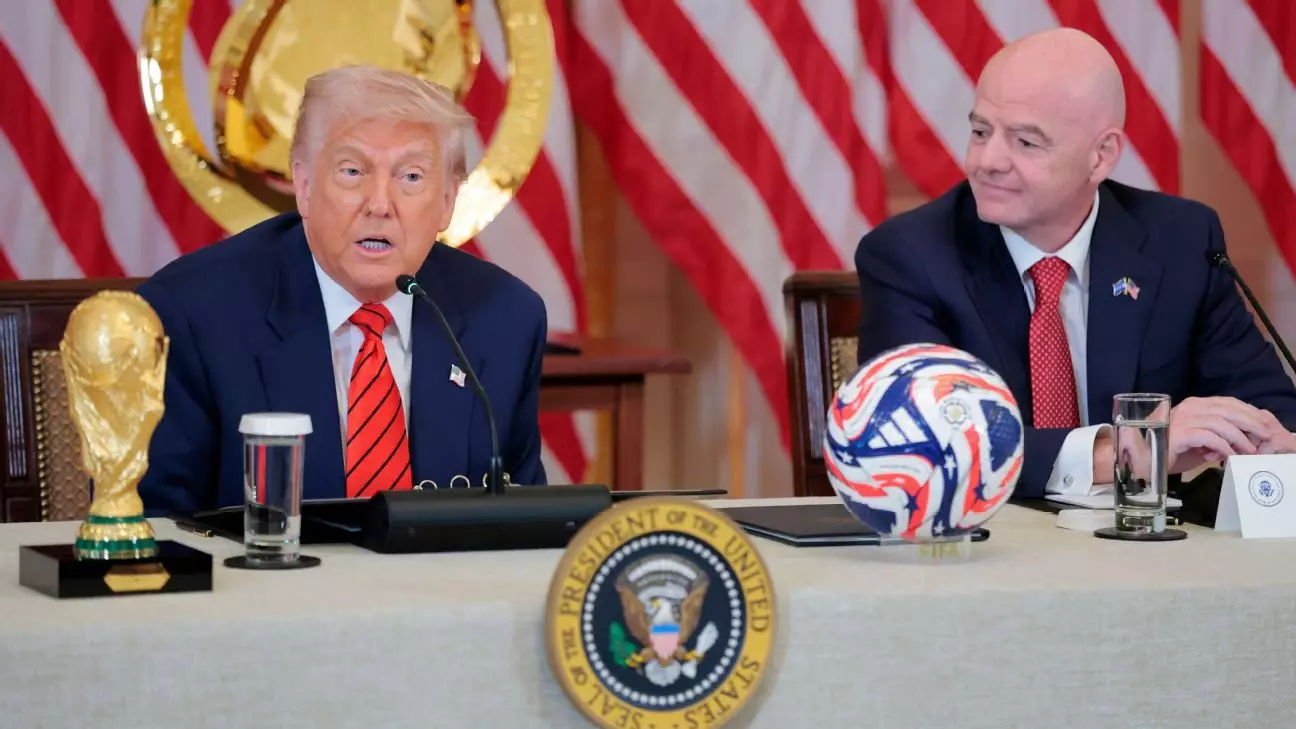In an unexpected turn of events, former President Donald Trump has posited that the allure of competing in the 2026 FIFA World Cup might serve as an “incentive” for Russia to cease hostilities in Ukraine. This statement, made during a meeting with FIFA President Gianni Infantino, raises significant questions about the intersection of sports and global politics. Historically, football has been a platform for diplomacy, yet the notion of tying international sporting events to geopolitical discourse underlines the complexities surrounding contemporary issues of war and peace.
The Ban on Russian Teams
Russia’s national football teams have faced a blanket ban from international competitions imposed by FIFA and UEFA since the onset of its military action in Ukraine in 2022. This sanction came swiftly and decisively, a stark illustration of how sports authorities can wield their influence in the context of global affairs. With qualification for the next World Cup in full swing, the implications of this ban grow deeper. As nations vie for 45 available spots, the absence of Russia serves not just as a penalty but as a reminder of the broader consequences of aggression on the world stage.
Incentive or Delusion?
Trump’s appeal to the idea of reinstating Russia into international competition as a possible motivator for peace is an intriguing, albeit controversial, proposition. It barely masks the underlying complexities of the situation. While the former president expressed ignorance about Russia’s current ban, his suggestion that reinstatement could spur a cessation of violence, given the “overwhelming” casualties reported in Ukraine, raises eyebrows. One cannot help but wonder if such a connection trivializes the suffering of those in conflict, reducing a profound humanitarian crisis to mere negotiation tactics within the realm of sports.
The Reality of Russian Football
What makes this situation even more perplexing is the reality of Russian football during the conflict. Although the national team has not participated in competitive fixtures since a loss to Croatia in late 2021, they have engaged in numerous friendlies, managing to secure 11 victories. This ongoing activity suggests that while international competitions remain closed off, Russia’s football community continues to foster some semblance of normalcy, not facing the same level of disruption as broader societal structures.
A Glimmer of Hope or a Political Maneuver?
The question remains: is this proposed incentive a genuine glimmer of hope for peace, or merely a strategy in the complex arena of international politics? Infantino’s muted optimism about the potential for peace as a pathway for Russia’s reintegration into competitive football aligns with myriad global institutions efforts to foster dialogue and encourage reconciliation through shared interests. However, framing it within the high-stakes context of a global sporting event risks oversimplifying the painful realities faced by millions in Ukraine.
This intersection of sports and military conflict speaks volumes about how the world is increasingly scrutinizing the motives and responsibilities of not just states, but also organizations that govern aspects of public life like sports. The effectiveness of such incentives remains to be seen, but one thing is clear: the power of sports in shaping international narratives cannot be underestimated, even if the outcomes remain uncertain.

